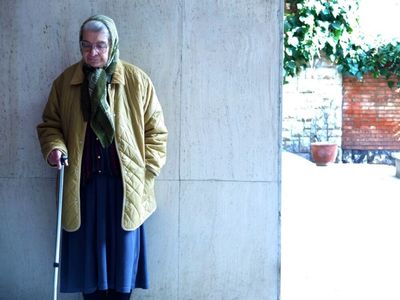Twelve drama and documentary films by 68-year-old Bani-Etemad are being reviewed in the program, which opened on January 27 with ''The May Lady''.
The museum's statement for the retrospective begins with reference to UK press during the British Film Institute's 2008 Bani-Etemad retrospective, reading ''She's foreign, she's a woman and she's still alive. Can a Rakhshan Bani-Etemad season at the BFI draw the crowds?''
She studied film and, shortly after the 1979 Iranian revolution, started her professional career working for Iranian state TV.
After three early commercial features that approach social issues from a satirical angle, Bani-Etemad found a strong personal vioce with her bleak, hard-biting social melodrama ''Nargess'' (1991), an instant clsssic both in Iran and internationally and the first part of the director's informal ''City Trilogy'', which she much later continued with ''The May Lady'' (1998) and ''Under the Skin of the City'' (2000).
Since ''Nargess'', Bani-Etemad's features have cast a piercing gaze at the anomalies of post-revolutionary Iranian society, usually focusing on the precarious role of women and their struggles in a patriachal environment.
Over the past fifteen years, documentary filmmaking has become Bani-Etemad's primary mode of expression, These films focus on what she perceives as major social anomalies.
''See You Tomorrow Elina'', ''The Blue Veiled'', ''Nargess'', ''Under the Skin of the City'', ''We Are Half of Iran's Population'', ''Our Times'', ''Angels of the House of Sun'', ''Gilaneh'', ''Mainline'', ''All My Trees'', ''Hey Humans'', ''Touran Khanom'' and ''Tales'' will be reviewed.
The program will end on February 28 with a screening of ''Tales'', a documentry containing seven short episodes in which Bani-Etemad reveals the fate of some of the female characters if her previous films like ''The Blue-Veiled'', ''Under the Skin of the City'' and ''Mainline''.
Source:Tehran Times

